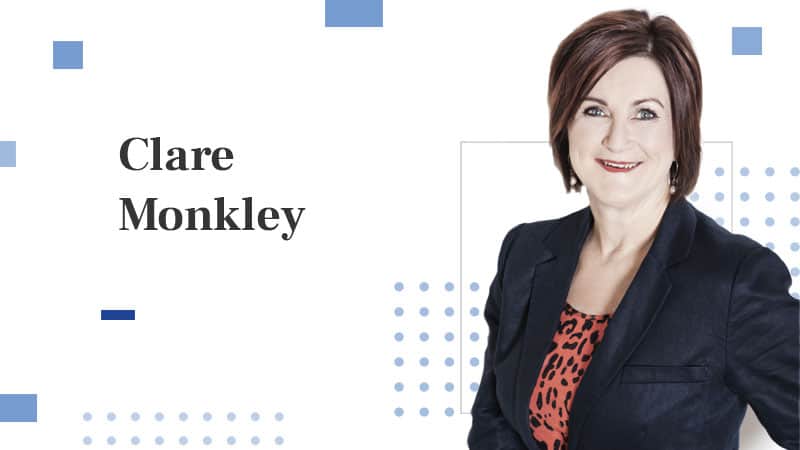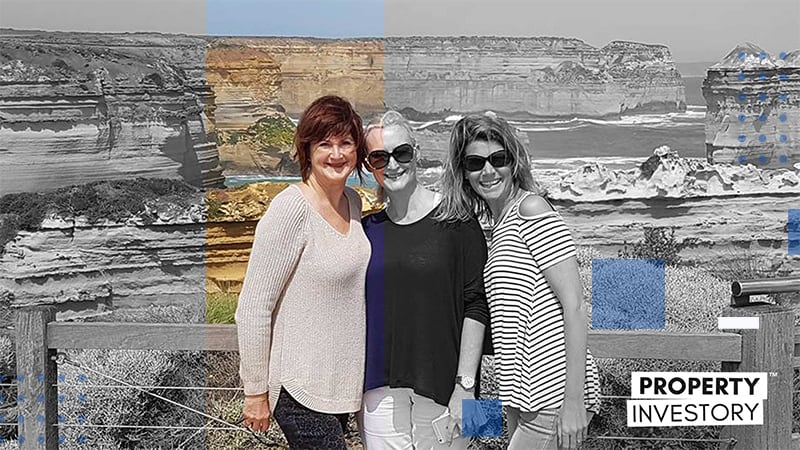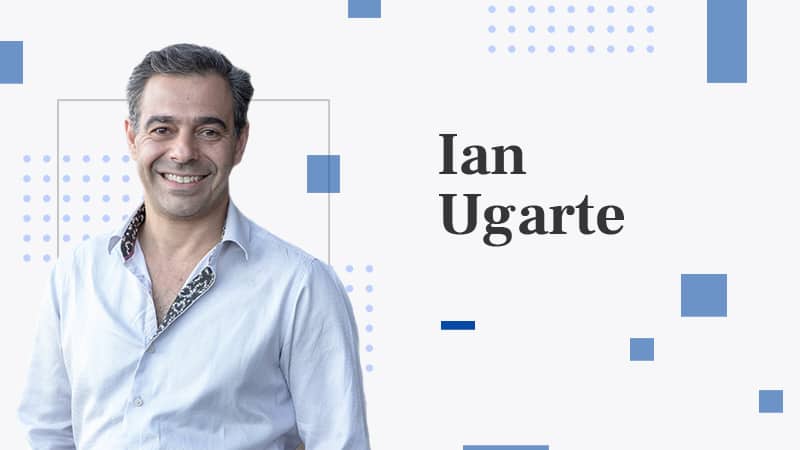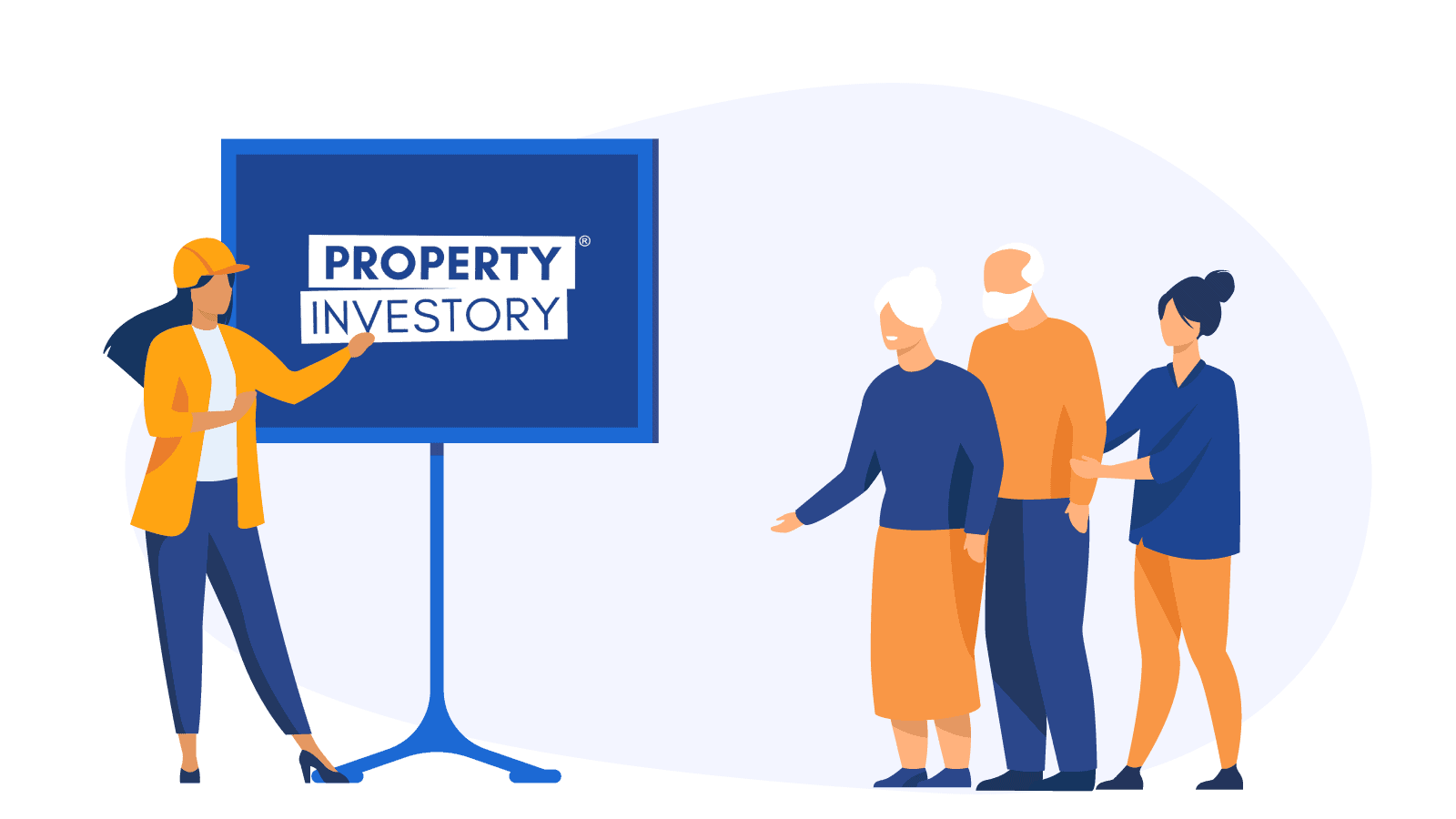

Are you looking to buy a new house where you can retire? Or are you a newlywed couple looking to purchase your ‘ultimate dream home’?
Well, if you’re in either the shoes of a newlywed or of a working professional and you’re aiming to buy a house for the first time (or the second or third time!), then you’ve come to the right place—or the right article, for that matter.
I’m going to share with you the six savvy ways you can fund a deposit home like a pro… yes, just like John Symond!
So, sit tight, enjoy reading!



John Joseph Symond, or as he is most famously known, ‘Aussie John’, is the founder and executive chairman of Aussie Home Loans.
Before he established his company in 1992, his career revolved in the commercial lending industry and the legal profession. In fact, as one of the first mortgage brokers in the country, he entered a joint venture with one of the subsidiaries of State Bank of South Australia.
As the story goes, when that bank went bankrupt in 1991, John lost everything and went broke himself. However, he didn’t let that tragedy stop him from pursuing his vision.
See, he had a dream for everyday Joes and Janes in Australia. He wanted to offer quality customer service and better deals to those who wanted to apply for home loans. And so that led the way to him founding his company.
Because of John’s perseverance and single-mindedness for his ambition, he changed the landscape of the Australian home lending industry.
To summarise, here are some of the incredible impacts that he and his company has made:
Even now, Aussie Home Loans is still making waves in the lending industry.
John has indeed established himself as one of the leading—if not the top—mortgage brokers in Australia. With grit and determination, he pushed forward with his vision for the lending landscape of mortgage brokers in the country.

So, what does John Symond have to do with your own property journey?
Well, look at it this way: You can achieve your vision or goal for buying that house or property you’ve been eyeing or dreaming of by following his example.
Yes, home buying is a challenge at the best of times. But don’t let that discourage you. I want to also share with you these words that Aussie John once said: ‘I know everyone has the capacity to make a success of themselves because I proved to myself that even I could do it.’
So, what’s your story? Are you struggling to come up with your house deposit and you really really want to purchase your dream home?
Don’t worry! With determination and focus like ‘Aussie John’ had when he started his company, you can achieve your goal and gain success along the way of your own property journey.
With these six tips I’m going to give you, you’ll raise the money needed for a deposit faster.
So, to find out how to do that, read on. ...But wait! Let’s look at the basics you must know about a deposit home.

It’s true that there are a lot of upfront costs that come with buying a house. For instance, you have:
But, above all of these, it’s the deposit that represents the biggest cost of all. You’re tasked with getting your hands on tens, or even hundreds, of thousands of dollars.
Just imagine that you’re trying to buy a property in Sydney. The median house purchase price in that city stands at $1 million. That means you’ve got to raise $200,000 if you want a home loan with a loan-to-value ratio of 80%. (Yep, you read that right. That is a steep number and it’s not including any closing costs too.) You need that deposit if you want to get your dream home.
And who has that sort of cash lying around?
A deposit for a home is a tall order at the best of times. And when you take a peek at your savings account, the odds of buying an investment property seem to disappear.
But, wait a minute. I have good news for you.
Okay, so while you may have to pay a deposit, there are things that you can do to shrink the payment.
So, are you ready?
I won’t keep you hanging in suspense any longer. Below are the savvy techniques you can use to help you fund a smaller deposit.

So, the top technique I have for you to go about funding your deposit like a boss or a pro (like John Symond!) is to work with a mortgage broker.
There are two things that you need to keep in mind when searching for a mortgage:
So, you’re spending a lot of time finding a mortgage that likely isn’t the best one on the market. That could mean that you end up paying more than you should.
A good mortgage broker will help you to find the best deal possible.
Furthermore, they’ll dig into your financials to help you work out how much you can comfortably spend on a property.

And beyond all that, a good mortgage broker will help you to set goals for your purchase.
Experienced property investor Clare Monkley later built her own mortgage broker business ‘Love Finance’ after having the opportunity to work for a mortgage broker years before.
I remember in one of our sit-down talks, she shared with me how she watched her boss assist his clients in building their wealth and how she helped do the structuring for them. She found that she had a penchant for work in the ‘mortgage brokering world’. She just loved it.

Thus, Clare worked with the knowledge that every person is unique and so every property journey is different.
She knew there’s not just one cookie-cutter mortgage plan that suits everyone. Her approach varies according to each of her clients’ needs and goals. And she uses a tool to calculate factors that could impact her clients’ strategy and goals.

I remember another friend who values the expertise of a good mortgage broker.
Michael Xia is a property investor who searched long and hard for a non-transactional broker during the start of his property journey. However, he knew when he’d found the right one.

Michael shared: ‘He was actually the very first and the only mortgage broker I spoke to, who was like, “Don’t worry about the loans, don’t worry about the structure, but what do you actually want to get from this? What are you trying to achieve?”’ (That mortgage broker even became Michael’s mentor later on!)
A good broker will help you to navigate the interest rate puzzle and different lending criteria. Plus, they’ll also make you more aware of your financial situation. That means you don’t end up spending more time on saving for a deposit than you can afford.

Like what I’ve been saying early on: As a residential home buyer, you most probably want to find your dream home.
The problem is that a home may be in a location that you can’t afford to buy in. If that is the case, then falter not because ‘rentvesting’ may offer a solution.
Investment property strategist Christine Williams was a rentvestor before the term even became popular.
In one of my interviews with her, she explained to me what a rentvestor does: ‘A “rentvestor”, to me, is someone who is renting where they want to work and live, but they can’t afford to buy their own home in the area that they want to live. [So] they start being quite wise investing in other areas and creating and building wealth outside where they’re living.’

In other words, by taking up a rentvesting approach, you rent where you want to live and buy in a more affordable location.
That simply means you’re automatically paying a smaller deposit because you’re buying a less expensive house.
Of course, you can then build equity in that property, which you can leverage for further purchases later. In fact, here are the other pros of rentvesting:
Now, if you find yourself inclined to tread the path that Christine Williams took, your strategy will help you reach positive results not only in the long term but also in the short term.

Following on from the rentvesting point, you have to consider affordability when buying a house.
You have to be honest with yourself in regards to what you can afford. This case may mean compromising on some of the things that you want to ensure you don’t end up paying a bigger deposit.
Co-Founder of Small is the New Big and real estate advisor Ian Ugarte believes that the focus on buying large houses is the problem.
He also says that the government should do more with the housing affordability problem: ‘So they should be concentrating on people like you and I, and your listeners, that have zero to six properties as investments and be able to convert those four-bedroom two-bathroom big houses into something that’s usable.’

However, such measures aren’t going to happen anytime soon. Nevertheless, as a full-time property investor now, Ian also educates other investors to create affordable housing.
Okay, so given that information, the ball is in your hands, so to speak. That means the onus is on you to find a property that falls in your price range if you want to pay a smaller deposit.
To help you focus on affordable housing over personal wants, try having a delayed gratification mindset. That mindset can help you stick to your goal of purchasing that dream home when you feel tempted to just leave it up in the air.

Let’s assume that you want to buy your first home. That means that you have no equity to leverage, which means you’ve got to save the money for your deposit.
The good news is that it’s possible that you could claim several grants to relieve the financial burden.
For example, most states offer a stamp duty grant or exemption for first-time home buyers. The exact amounts vary by state, so make sure you do your research. Furthermore, you can take advantage of several grants that help first-time buyers get on the property ladder.

It’s clear that if you are a first-time home buyer, you may find yourself nervous or uncertain about what to do first or how to go about buying your dream home. And I understand that. But there is a strategy or grant out there that’s best for your situation.
The First Home Owner Grant is an example of one of the strategies that Daniel leverages. This grant guarantees 10,000 low-discount mortgages per year. Such mortgages require a 5% deposit, rather than the usual 20%.
If you apply for such schemes, you can massively reduce the deposit burden if you’re a first-time buyer. (Sounds good, right?)
With that knowledge, why not follow Daniel’s approach? Check for grants applicable to you and pave your way towards your dream home.

Okay, so let’s come back to the investing and development side of things.
You may have plenty of knowledge stored away in your head. You’ve attended seminars, completed courses, and understand how to bring a development to fruition.
Now, your challenge is that you don’t have the money needed to buy your home or start your own project. You can’t afford the deposit on land or property,which means that knowledge goes to waste.
This is where entering a joint venture may be able to help you.
A joint venture is an agreement between two or more parties to work on a project together.
As part of the venture, each party commits to certain roles and responsibilities. For example, as a developer, you could manage the project. Furthermore, you could rely on your venture partner to provide the financing that the project needs.

Matt Jones is a successful investor who manages an extensive portfolio. He says that joint ventures offered him a route into investing and developing when he couldn’t afford a deposit.
He shared this thought with me: ‘So, joint venturing became really important for me early on. Because I was on a postie wage, I couldn’t borrow any money from the bank, so my very first deal was a joint venture.’
Happily, that first deal led to a profit, which led to another deal. And today, Matt still uses joint ventures to help him to invest and develop.
The key here is that you need to bring expertise to the table. If you want a money partner to join you on a project, you need to show that you can pull your own weight.
By following through with this approach, you may find yourself holding the keys to your new or dream home sooner than later!

I’ll explain this tip as straightforward as it can be.
In truth, one of the significant challenges with raising a deposit is that you need to show that it comes from genuine savings. That means you can’t rely on credit cards or other borrowed money to fund it.
That is... unless you have a guarantor.
A guarantor is somebody—typically a parent—who agrees to co-sign on your mortgage with you. The guarantor puts up an asset to use as security on the loan. And in return, you pay a smaller deposit. In some cases, you can get a 100% loan on the property’s value.
However, this technique does come with some risk for the guarantor.
If you default on the loan, the lender will come after the asset used as security. As such, you will need to feel certain that you can afford your monthly repayments before using this technique.
In short, if you do want to go with the approach of having a guarantor, just make sure you’ll follow through with your end of the deal and complete your repayments until the end.

Now, you’ve seen in detail the many costs associated in buying property. True, it’s enough to make your head spin. But if you use these savvy techniques I just shared with you, you may be able to take a huge chunk out of one of the largest costs you’ll pay. And you’ll definitely be funding your deposit home like John Symond along the way!
(Having a guarantor or creating a joint venture agreement could even help you to get a property without paying a deposit at all!)
Still, if those aren’t options for you, then you need to understand your limitations as a buyer
Part of your property journey as a savvy buyer is to focus on what you can afford and work with a mortgage broker to get the best possible deal on a loan. And, yes, that is where we at Property Investory can help.
Simply fill out the form below, and we’ll recommend an expert to talk to you about your mortgage needs.
As someone who’s in property, I am looking forward to how your journey story will unfold in the coming months and years to come.
So, why not join in on the property adventure!










